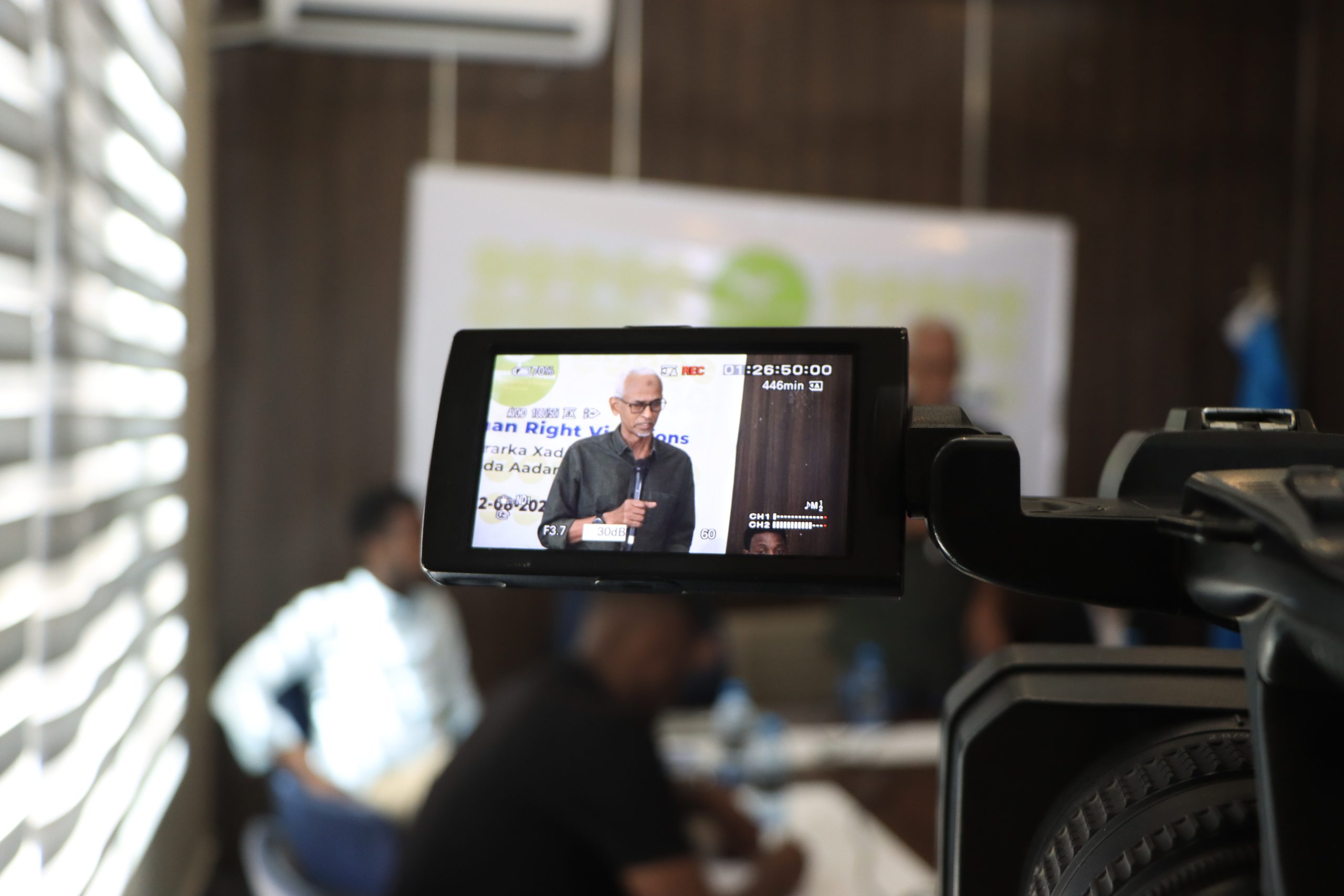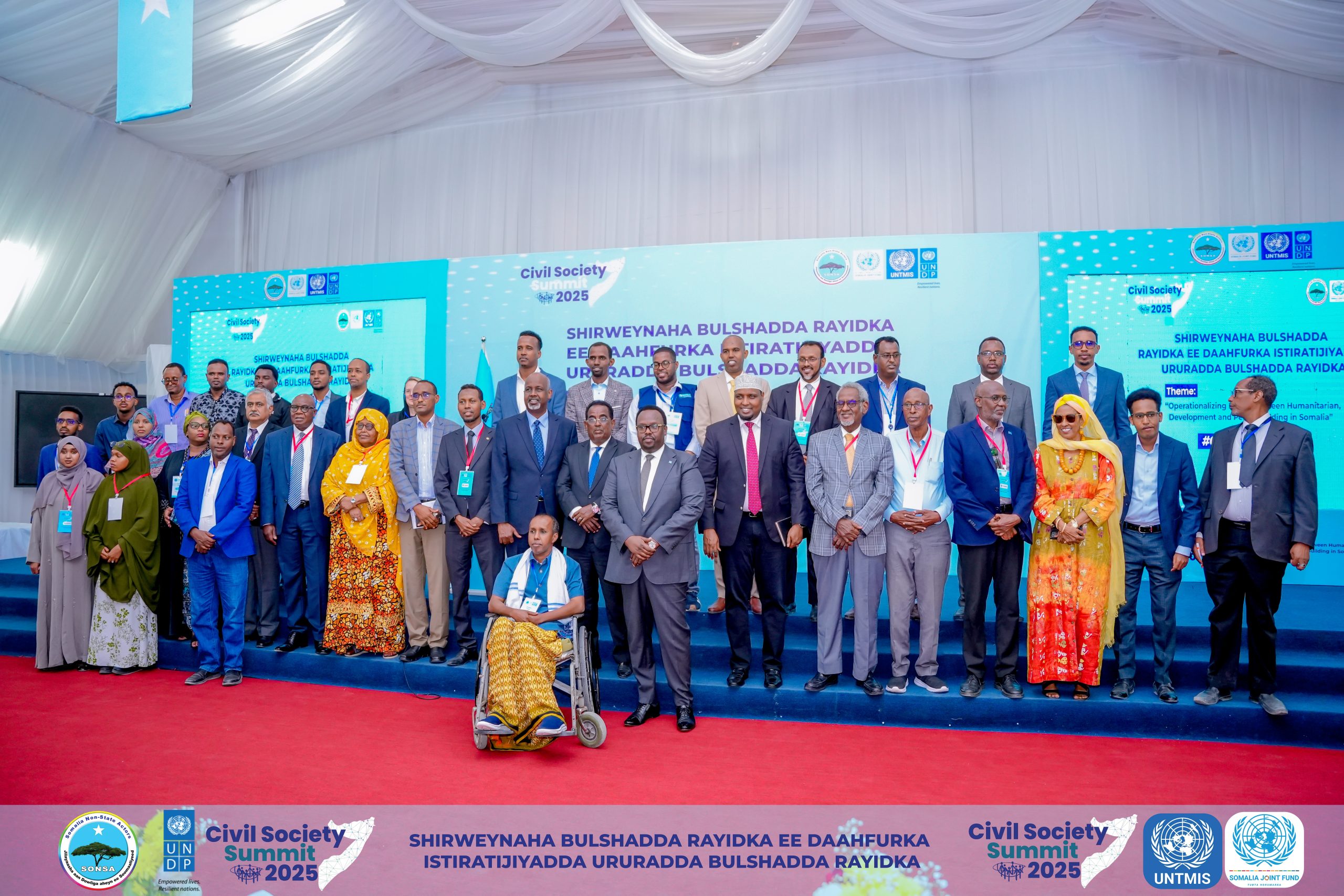INTRODUCTION
On August 12, 2024, Independence House conducted a one-day training workshop in Mogadishu focusing on “Reporting on Human Rights Violations.” This event brought together ten journalists, both male and female, from different media organizations and freelance backgrounds. The training aimed at enhancing the trainees’ comprehension of fundamental human rights issues and improve their ability and know-how on reporting violation of human rights and proactively champion the advancement of human rights in Somalia through journalism.
The training approach was interactive and enabled robust exchange of ideas, experiences and knowledge. The sessions included PowerPoint lectures, queries and feedback.
CONTEXT AND RATIONALE
The training was held against a backdrop of a challenging working environment for journalists and media workers in Somalia. The country has been grappling with significant human rights violations perpetrated by both state and non-state actors. This situation has created a pressing need for journalists to be well-versed in human rights issues to advocate for citizen rights and promote accountability through their reporting.
Additionally, Independence House is keen on promoting and protecting human rights in Somalia in partnership with the media and other human rights champions. By conducting this training, Independence House acknowledges the integral role of the media in advancing the protection and promotion of human rights in Somalia.
TRAINING OBJECTIVES
The primary objectives of the training were to:
- Equip journalists with fundamental knowledge on human rights: To educate journalists on various human rights issues and the role of journalism in addressing these concerns.
- Promote proactive journalism: Emphasizing the importance of proactive efforts in reporting human rights violations.
- Enhance professional capacity: Improve the overall ability of journalists to navigate and report on human rights issues effectively.
KEY SESSIONS AND CONTENT
The training covered several crucial aspects:
- Fundamentals of Human Rights: Understanding basic human rights principles and their relevance to journalism.
- Reporting Techniques: Strategies for accurately and responsibly reporting on human rights violations.
- Case Studies and Discussions: Analysis of real-life cases to facilitate discussion and deepen understanding.
- Editorial Practices: Guidance on incorporating human rights perspectives into editorial practices.
Experienced media trainer Hanad Ali Guled facilitated the sessions, offering practical insights and leading discussions on the complexities of reporting on human rights violations.
RESOURCE PERSON’S PROFILE
The team which delivered the training comprised three media professionals with extensive knowledge and experience in media practice and management in Somalia.
Hassan Mohamud: He commands over 10 years of media practice and senior management in Somalia. Mohamud has been actively involved in developing and executing media development models in Somalia covering radio, television and online media platforms. He is currently the Secretary General of Independence House.
Farah Omar Nur: Having worked actively across radio, television and online media for over ten years, Nur is currently the Media and Human Rights Officer at the Federal of Somali Journalists (FESOJ).
Hanad Ali Guled: Mr. Guled is a seasoned journalist and has extensively worked as a reporter, editor, producer and senior media manager in Somalia for over 15 years.
KEY TRAINING AREAS
The training covered the following topics:
- Basic understanding of human rights
- Overview of human rights practice in Somalia
- Violations of human rights in Somalia
- Role of journalists/media in protecting and promoting human rights in Somalia
- Reporting human rights violations
END OF TRAINING EVALUATION BY PARTICIPANTS
At the end of the training, the participants provided feedback on the content of the training and the trainer’s evaluation. All the ten participants filled the evaluation forms which rated the training material and the delivery by the trainers.
LESSONS LEARNT AND BEST PRACTICES
- The interactive sessions were helpful in enabling participants share experiences, case studies and also learn more from the trainers.
- Future sessions will require more time. This will enable the participants undertake practical exercises and presentations.
CONCLUSION
Independence House’s training on “Reporting on Human Rights Violations” has been a significant step toward strengthening the capacity of journalists in Somalia. By focusing on human rights and providing practical skills, the training not only aimed to enhance journalistic standards but also to contribute to a more informed and accountable media landscape. The positive feedback from participants and trainers underscores the value of this initiative and sets the stage for continued efforts to support and protect journalists in Somalia.










